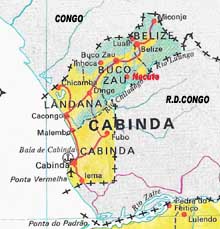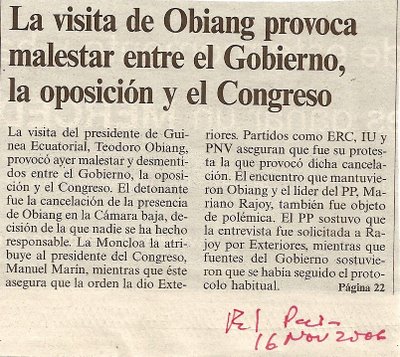Margaret Beckett, como convidada central no almoço dos Embaixadores da UE, na Embaixada da Finlândia em Londres, ontem (20). Apelo à unidade europeia nos dossiers da luta contra o terrorismo e das mudanças climáticas. Documento.
Arquive-se.
Margaret Beckett,
tem a palavra
Thank you for inviting me here today.
Almost exactly a month ago, I was in Berlin. I was there to deliver a speech on the foreign policy aspects of climate change.
It was the most important speech I had yet made on a problem that I believe poses one of the greatest threats to this country.
So why did I choose to go to Germany to make that speech rather than do it here in London?
The reason was the European Union: its role and its potential.
The impression that other Europeans often have of Britain – not entirely unreasonably given some elements of our press here – is that we want as little as possible to do with the rest of Europe. In fact, I am in absolutely no doubt that for many of things which matter most to the people in this country, it is only by working with and through the European Union that we will achieve success. For we Europeans, the global environment has never been more important or more complex. Never more important because what goes on beyond the borders of our countries and of our continent is having a deeper and more direct impact on our lives here at home than ever before.
The challenges we face – counter-terrorism, climate change, nuclear proliferation, jobs and growth in a globalised world, organised crime, drugs, securing the energy we need to power our economies – are global in their nature and increasing in their severity and in their scale. And this environment is complex because all of these global challenges can only be met by truly global action. No country in the world, however powerful, can hope to overcome them on its own. We need to build a truly international consensus that involves nations from across the political and economic spectrum.
The United Kingdom has important bilateral allies – not least the United States. But it is the European Union which is most often where we see the starting point for building this international consensus. We already work closely together with each other on a daily basis on a vast array of issues. We are the world's biggest single market and the world biggest political union.
By speaking together we have a powerful voice on the world stage. By acting together we set a striking example. And if we concentrate on these things – the areas where our countries, by working together as a strong, effective European Union, are able to achieve more, do more, make the lives of our citizens better – then the question the voters of Holland and France posed last summer will have been answered. And here I must pay tribute to the Finnish Presidency and indeed to the Austrians before them. Good, positive progress came out of the Lahti summit on the EUsexternal policy, especially on Russia and on energy security. There has been a strong focus too on innovation: work on patents and Intellectual Property Rights that will help us build the knowledge economy necessary to compete in a globalised world.
As a former scientist myself, I know just how vital it is to get that legal underpinning right if you are going to exploit the talent and commitment of your innovators and entrepreneurs. And there has been some good work to build recognition of the links between climate security and the security of our energy supplies. The forthcoming European Council is a chance for further progress in these and other areas – not least on Justice and Home Affairs. One of the real successes of the European Union in recent years has been the way that it has forged new tools to help us all in the fight against terrorism and organised crime. We in the UK had reason to be grateful for the new European Arrest Warrant in the wake of the horrific attacks on the London Underground last summer.
But let me look a little wider than the formal agenda of that meeting and set out some of the particular challenges where as a British Foreign Secretary I look to the European Union to help achieve our strategic priorities. There is a very short window of opportunity if we are going to get agreement on the Doha Development Agenda. If we are serious about helping people to lift themselves out of poverty then that agreement is vital.
But the Doha round goes beyond trade and the economy. It is test of the levels of trust between North and South. And if we don't get an agreement, then we can't be surprised if levels of global insecurity and mutual mistrust continue to rise. So a fair deal for fair trade is as much in 'our' interests – those of the developed world – as it is in 'theirs', the poorer countries. More than ever before, the old adage 'united we stand, divided we fall' is true. And the 'we' is now the global community as a whole.
The European Union has a major role to play if we are going to break the deadlock. We must ensure that we are able to respond if others move. Alongside this, we need to keep on liberalising our own internal markets, investing in education and research, making it easier for our businesses to operate. This is the Hampton Court Agenda. It's President Barroso's emphasis on jobs and growth. The challenges of globalisation are not going to go away. We have to meet them with change and ambition not with complacency.
There is a lot more that we have to be doing on climate security.
We have the intellectual capacity to steer the global debate. And we have the technological capability and a budget – more than 120 billion Euros a year – that give us the ability to drive global action: on research and development, advanced technologies, renewable energy, energy efficiency.
Others have responsibilities too, of course. But the EU has always been seen to and been praised for taking the lead. So we should:
strengthen the Emissions Trading Scheme, forge deeper and broader energy partnerships with China, India and others, move as soon as possible to zero emissions fossil fuel plants within the EU, accelerate carbon capture and storage, put the Commission proposals on energy efficiency into action. And Europe has an increasingly vital role to play in helping to deal with the existing and emerging security crises around the world. The agreement for a peace keeping force in Darfur reached last week was an important breakthrough. It will only work if President Bashir accepts the UN proposal for 17000 troops with joint UN and African Union oversight.
I am concerned at the reports of continued violence over the weekend. Without a cease-fire, the renewed political process cannot make progress. If President Bashir refuses to co-operate with the International Community then further sanctions might need to be considered. The EU must continue to take a strong line.
The EU has been a positive force at a difficult time in the Middle East Peace Process – the Temporary International Mechanism has made a real difference to the lives of Palestinians on the ground. We have to keep the faith – and renew our efforts once again – on finding a lasting political settlement to that most intractable of conflicts.
On my first day as Foreign Secretary – it seems rather a long time ago now – I flew to New York to take part in the E3+3 negotiations on Iran. It was obvious that here was an area where we Europeans were really driving the international agenda and actively forging an international consensus. We'll need to continue doing that.
That is hardly an exhaustive list of either the EUs or the UKs international priorities. But it is an indication of how Europe is now a natural and instrumental element of virtually everything that my department does. I want to end on a topic which is bound to feature heavily at the European Council: enlargement.
I have always been of the view that it is a mistake for us to see ourselves in Europe as some exclusive, inward-looking club. Our strength comes from our diversity and from our power to influence the world beyond our borders. Every one of the countries represented in this room has been changed, for the better, by its membership of the European Union. The steady transformation of an ever-widening circle of countries has been an achievement on a par with guaranteeing sixty years of peace in Western Europe. And the transforming power of Europe remains an intensely relevant part of the European project. Nowhere more so than with Turkey: a young, growing economy, a partner on a wide-range of areas crucial to our security, and a bridge to the rest of the Muslim world.
Any candidate joining the European Union has to meet strict criteria and fulfil its obligations. And if they are not ready to join, then they should not join. But we should not allow the EU to lose its ambition. If we get enlargement right we will end up with a stronger European Union, more prosperous and secure at home. More influential abroad.
Your Excellencies, Let me end there. This is the first time we have met in this forum. I hope I have been able to give an idea of our commitment to and hopes for the European Union. I'm looking forward to our discussion.
 1- O Processo teve início com elevado número de fiscais e respectivos suplentes, não credenciados, em tempo útil, em flagrante violação ao nº 4 do artigo 15º da Lei 3 / 05, de 1 de Julho, Lei do registo eleitoral; decorrida uma semana do início do registo, continuam a existir problemas de credenciamento de fiscais nas províncias do Uíge, Luanda, Huambo, Bié e Bengo.
1- O Processo teve início com elevado número de fiscais e respectivos suplentes, não credenciados, em tempo útil, em flagrante violação ao nº 4 do artigo 15º da Lei 3 / 05, de 1 de Julho, Lei do registo eleitoral; decorrida uma semana do início do registo, continuam a existir problemas de credenciamento de fiscais nas províncias do Uíge, Luanda, Huambo, Bié e Bengo.




